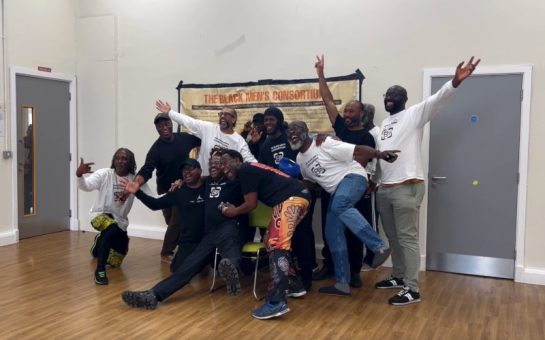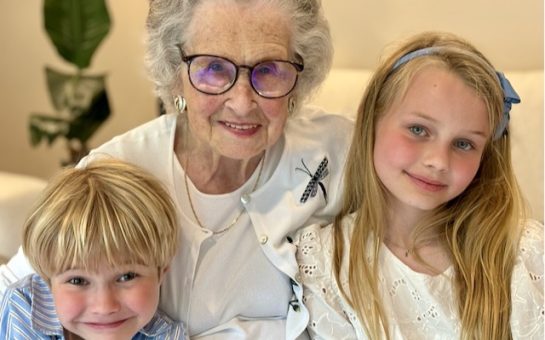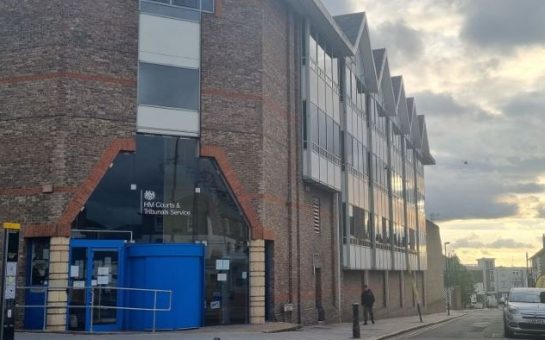By Aliss Higham
January 29 2020, 12.24
Follow @SW_Londoner
Adam was walking home from work in November with his headphones in when he noticed a man across the street motioning to him to cross the road.
Thinking that the man was going to ask him for directions, Adam approached him.
He motioned at Adam’s kippah and began shouting antisemitic abuse at him, and threatened him with physical violence.
As Adam walked away, the man threw up a Nazi salute.
A British Jew born and raised in London, Adam was shaken, but not surprised, by the attack.
He said: “It’s happened to my friends. It’s on the news everyday. We all experience it, we all live it. It’s more a part of our everyday lives now than it has ever been before.
“This was the first time I was personally targeted on the street, and I have constant anxiety that it won’t be the last.
“In the end, I was just happy I got away and I didn’t get hurt.”
Adam’s story is uncomfortable, but is one that is unfortunately becoming more common due to year on year rises in antisemitic hate crimes across the capital and the UK.
In December, antisemitic graffiti was plastered on the walls of a synagogue and several Jewish-owned stores in Hampstead and Belize Park during the Hanukkah festival.
Not even a month into 2020, the walls and windows of a Barclays Bank in Blackheath were painted with a Star of David, next to the word ‘jews’ and what appeared to be a Celtic cross.
A 13-year-old boy was punched and subjected to antisemitic abuse on a bus in Stratford on January 5.
This week, a swastika was found spray painted on a wall in Twickenham near the river.
It’s hard to ignore the unprecedented role of antisemitism in British life over the past couple of years.
It has become a regular feature in national politics and the media to an extent not seen for generations.
Ongoing controversy over antisemitism in the Labour Party has dominated headlines, as well as the Israel-Palestine conflict which has, to put it lightly, divided opinion.
In 2018/19, there were 103,379 hate crimes recorded by the police in England and Wales.
This continues an upward trend in recent years, with the number across the UK doubling since 2012.
The number of recorded hate crimes also rose sharply in the immediate aftermath of the 2016 EU referendum.
In the first six months of 2019, the Community Security Trust, a charity that protects British Jews from antisemitism and related threats, recorded the highest number of antisemitic incidents in the UK in the same period of any year.
Home Office data suggested that Jewish people were the second most commonly targeted group for religious hate crime after Muslims, with 1,326 offences in 2018-19, up from 672 the previous year.
Classifying hate crime by perceived religious target is relatively new and only became compulsory in 2017-18.
The CST’s annual report for 2019 said that online hate crime had the biggest insurgence in recent years.
Adam said: “I see antisemitic Facebook posts several times a day, every day.
“A lot of these are to do with the state of Israel and people misunderstanding and being misinformed about the Palestine situation.”
An opinion poll, run by the EU across member states, found that 75% of Jewish people living in the UK found antisemitism a problem in everyday life.
Adam said: “It’s a shame, that in 2020, we’re still having to deal with ethnic minorities like myself being targeted.”
“Events like Brexit have come about as a result of people’s problems with immigrants, or anyone who doesn’t fit the status quo of the average British person, even if they are British.
“They complain they don’t integrate, don’t dress or act the way most people do.
“But is it any wonder that these communities are so often scared of doing exactly that, because this is the way they treated?”
Londoners have been doing their bit to commemorate Holocaust Memorial Day, which took place on January 27, 75 years to the day of the liberation of Auschwitz-Birkenau.
“Talking about it is all the more poignant considering what this week means to people like me,” Adam said.
The Landmark Arts Centre in Teddington has curated an exhibition of artwork and poetry by local school children, community groups and artists from across the borough.
The Duke and Duchess of Cambridge led the memorial event in London earlier this week, where they were joined by survivors of the Holocaust and more recent genocides.
Adam said: “It’s nice to see these types of events taking place. To battle antisemitism, it’s so much more than learning about what happened in the Holocaust – we need to learn about what we need to do to actively make sure communities understand each other, and work with each other to create a more harmonious and peaceful society.”
However, Adam is still hesitant about the future of British Jews and other minorities.
“For me at least, there’s no clear leader in this country that cares about Jewish people and ethnic minorities.
“Particularly for people like me, the battle is ongoing. There is a reason they call it ‘the longest hatred’.”
Adam’s name has been changed to protect his identity.




